Meet the family that’s been serving up Polish classics in Greenpoint for decades
June 20, 2025, 10:01 a.m.
Pyza has been serving traditional Polish dishes since 1993.
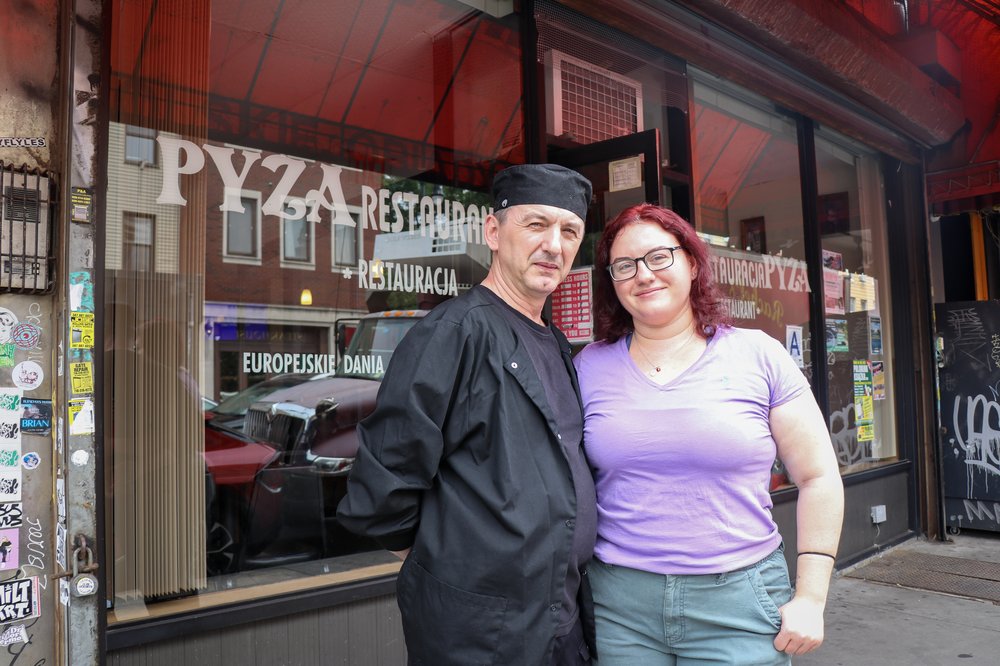
On a recent Friday afternoon, Marek Prusaczyk, 60, was boiling about 40 pounds of beets for the traditional Polish cold beet soup that he seasons with dill, scallions and buttermilk at Pyza in Greenpoint. The summer specials were starting up.
Throughout the lunch service, a stream of diners — mostly seniors, some younger in their 30s, all speaking Polish — walked in. Many ordered the beet soup.
"I’m starting blueberry pierogies next week!" Prusaczyk yelled excitedly to me across the kitchen.
Pyza (PIH-za) is a casual, sit-down counter spot serving excellently executed traditional Polish dishes in a Little Poland that’s been steadily shrinking in Greenpoint, Brooklyn.
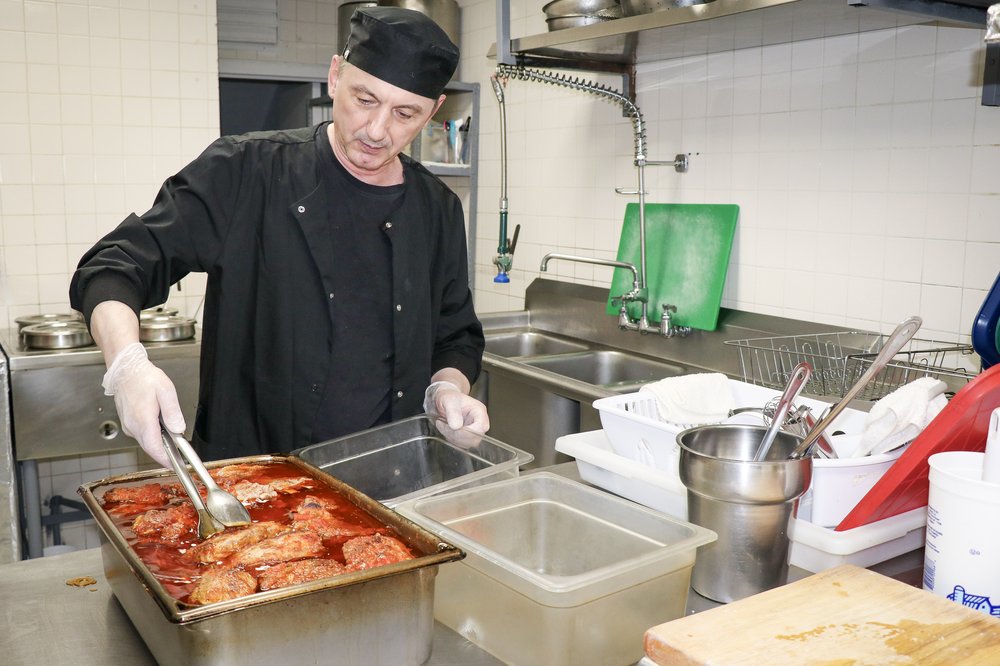
Pyza has been a neighborhood staple since 1993, and is a holdout from another era — when Greenpoint’s Polish community was bustling with restaurants, bookstores, travel agencies, meat markets, bars and more, serving recently immigrated Polish people, Marek recalled with joy and nostalgia.
“You didn’t even have to know English to get by,” he said.
Though several beloved Polish establishments across the city have shuttered in the past decade — Krolewskie Jadlo, Sikorski Meat Market, Lomzynianka and Teresa’s, to name just a few — Pyza has remained a constant in the city’s Polish food scene.
Marek’s aunt and uncle, Wanda and Chris Zawistowski, immigrated first, in the 1970s, followed by his mom, Daniela Prusaczyk, in 1980, and then Marek, in 1990 at 25 years old.
They all worked whatever jobs they could find — home attendant, construction, hospitality — to save up money for their dream restaurant.

His family had always loved cooking and believed the United States provided more economic opportunities than they found in Poland, which endured political and economic unrest during communist rule before transitioning to democracy in the 1990s.
In 1993, they opened Pyza, a small six-table, steam table joint, where the Jewish deli Frankel’s now stands. Their customers, almost all Polish Americans, relished the rosol (chicken noodle soup), flaczki (tripe stew), pyza (stuffed mashed potato), pork cutlet, zurek (white borscht) and pierogis.
Between jobs bussing tables at Manhattan coffee shops and removing asbestos from buildings, Marek learned to cook at Pyza, under the guidance of his mom and aunt.
First, he peeled carrots and potatoes, then advanced to cutting onions, then separating the fatty parts of meat, and then carving and slicing the good parts.
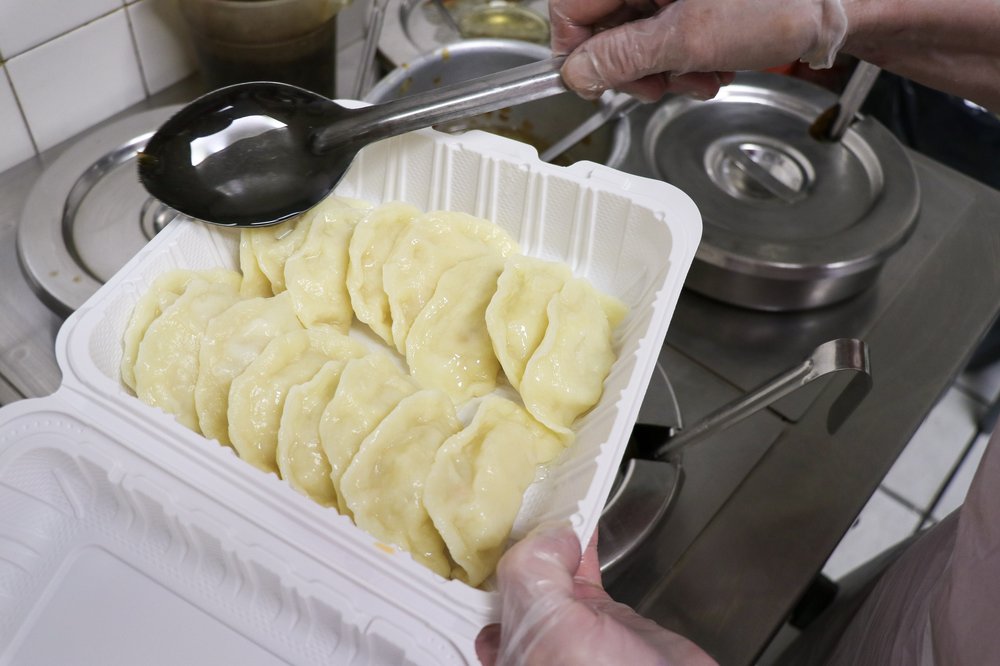
“You can't just skip steps,” he said. “Because every lesson, no matter how small, is vital.”
In 1998, the family was able to expand to a bigger location. And Marek started working there full-time. His wife, Grazyna Prusaczyk, whom he met at the now-closed Polish bar a few blocks away, managed the cash register and pinched pierogis during her off hours from her cosmetologist career at Estée Lauder.
In 2012, Marek’s aunt and uncle retired, and he took full control over the business. But times were changing: The recession and gentrification led to a dwindling Polish community.
Old-world dishes like ham hock and chicken meatballs in dill sauce, which were labor-intensive and catered to traditional Polish palates, were taken off the menu. These changes helped them run the kitchen more efficiently.

The pandemic dealt another blow, Marek said, adding that more Polish Americans — including Pyza’s staff — left Greenpoint. That’s around the time his daughter, Izabella Prusaczyk, 31, lost her job at Assemblymember Joe Lentol’s office (he wasn’t re-elected), and filled in the gaps at the restaurant, prepping ingredients and plating dishes.
“We were dangerously close to closing,” she said, of that time. “We were worried about if we're going to ever get that clientele back up.”
Pyza is running smoothly 32 years later; it doesn't have a website and it's cash-only. Izabella attributes the success to a huge culture shift — a culinary adventurousness — that’s swept through the city. She can recall the days when many New Yorkers hadn’t heard of Greenpoint.
New non-Polish residents and even tourists have been keen to try traditional Polish dishes. These days, she said, there’s a 60%-40% breakdown of Polish to non-Polish customers.
“Slowly but surely, business is back,” she said.
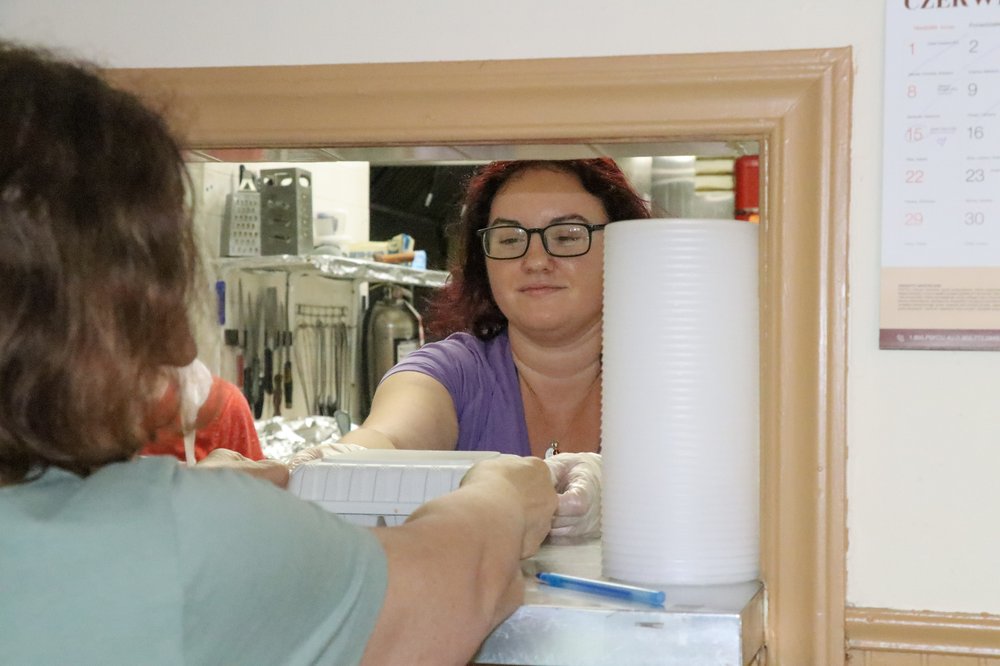
That means Marek gets to continue his routine: waking up at 5 a.m. to start cooking at Pyza by 7 a.m., making beautiful dishes expertly and traditionally.
For the namesake pyza (a stuffed mashed potato), he stuffs fluffy dried, shredded pork (similar to pork floss in Chinese pastries) inside a fist-sized oval of mashed potato that has a bouncy chewiness like mochi. For the red borscht, he sifts a savory beet broth to produce a hot, translucent red liquid that he serves in a glass mug. It’s typically sipped between bites of blintzes.
For the Hungarian pancake, a cultural blend that’s popular in both Poland and Pyza, Marek fries two flat, thick, nearly foot-long potato pancakes. He spreads a chili-infused goulash in between them and tops it with a mound of sour cream. The zurek, a white borscht, is another bestseller here, and he cooks it with fermented rye flour and sausage. On these warm days, the chlodnik (cold beet soup) is a hit.
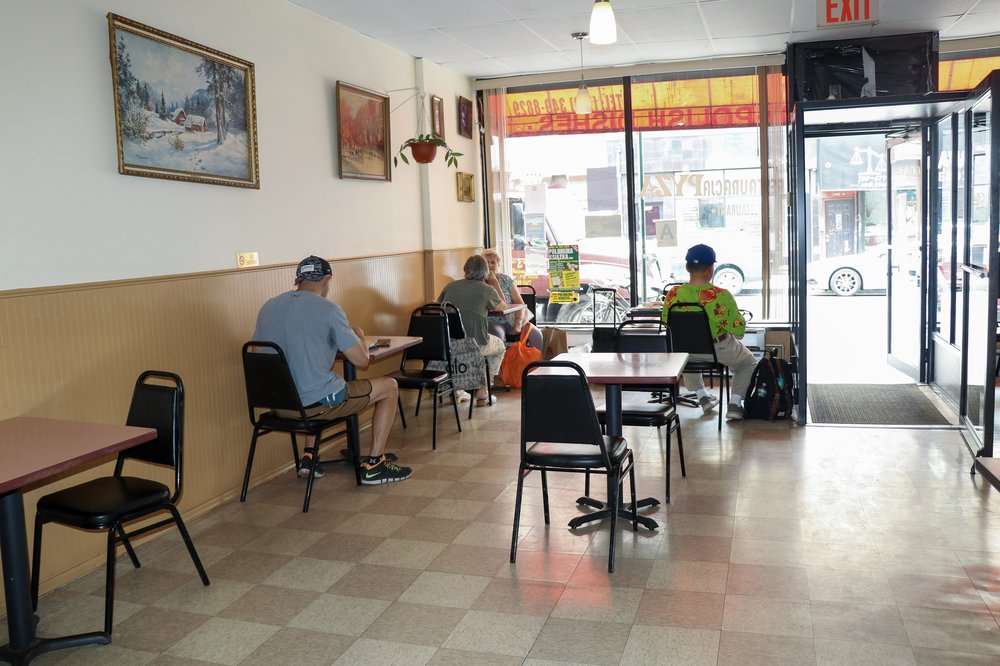
Pyza remains one of the last Greenpoint staples serving up authentic Polish food. In May, Polka Dot, another casual Polish counter spot from the 1990s shut down.
“It’s sad, you know. The community is disappearing,” said Izabella. “But this restaurant is a part of me. I was raised here. I don't know my life without this restaurant.”
She feels torn between going after her own career in criminal justice and keeping the restaurant going. Her parents don’t pressure her to stay.
“My dad feels bad. He’s like, ‘I’m sorry if I’ve burdened you,’” she said. “But I have this one vision where I’m like, ‘Yeah, let's keep it down from generation to generation. I love the restaurant. I love the tradition. I love the culture. I think it's really cool to have this place in the community.”
Where to eat in Times Square — and why you’d want to Who is Prime Mutton and why do New Yorkers care what he thinks about their Guinness? Tribeca chefs win big at the James Beard Awards